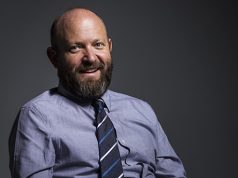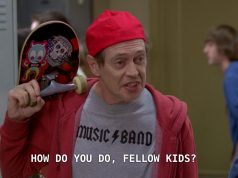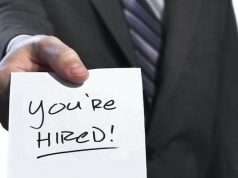
Clinical depression has very different social repercussions from other illnesses. Your boss doesn’t think twice when you call to say you’ve got strep throat and won’t be in for a few days. But when you’re depressed — what, you can’t work because you’re SAD? You’re calling in SAD today??
Or at least that’s how you think people will react. When my anti-depressant medication quit working a couple months ago after 6 1/2 years of faithful service and I was plunged into a devastating pit of depression, I was glad — well, “glad” insofar as I was capable of feeling glad — to find that we live in an enlightened age. Almost everyone I talked to had either dealt with depression or knew someone close who had. There was widespread understanding, and my fear that people wouldn’t take it seriously as a real illness proved unfounded. (Sadly, my efforts to gain similar acknowledgement of the reality of DVR Withdrawal Syndrome have not been as successful.)

“Depression is the WORST sickness!” said one writer friend who has suffered from it. “If I had the flu, I could still write. I could vomit on the keyboard and still write. But when I was depressed, I couldn’t do ANYTHING.”
The problem, of course, is that “depressed” has an everyday meaning, too. “That movie was depressing.” “I turn 40 next month — how depressing!” “That guy whose entire family was killed by a bear is really depressing to be around.” In that context, “depression” just means feeling down in the dumps, a little low in spirits.
But real depression — clinical depression — is something else. It’s being down in the dumps times a hundred. It’s being down in the dumps times a hundred, AND you feel like there’s no way to get out of it, AND you hate yourself for feeling that way, AND all you can do is cry, AND would you just look at how fat you are? No amount of ice cream or sympathetic friends or CDs by The Cure can help it. It’s a chemical thing in the brain. It’s a PHYSICAL problem, just like the flu, or having red hair, and just as awful.
The Beginnings
It began suddenly for me. I woke up on Monday, Aug. 24, feeling a little nauseated and generally out-of-sorts. My 35th birthday was two days away; I figured my body was preparing to fall apart just after its warranty expired. (In hindsight, I should have bought the 70-year warranty on my body, not the 35-year.) I still felt a little “off” the next day, and that night I broke down sobbing over the worthlessness of my life. Mind you, this is not a common occurrence, the way it might be for someone whose life actually is worthless, like Bill Maher. Objectively speaking, my life is very pleasant, with no more stress or aggravation than the average person has, and quite a bit less than a lot of people. I do not live in a war-torn country like Afghanistan or Detroit, I am not friendless and unloved like Lou Dobbs or Nancy Pelosi, and I am not impoverished and homeless like Matt LeBlanc. There was no logical reason for me to be so distraught at the state of my life.
The next day was my birthday. It was a Wednesday, which is not conducive to celebrating, so an extravaganza had been planned for Friday. You’ll notice that your calendars for August said “Eric D. Snider’s Birthday” on the 26th, and “Eric D. Snider’s Birthday (Observed)” on the 28th. The point is, the day itself was already going to be low-key, and now it was … extra-low-key. What with the unexplainable sadness and frequent sobbing and all.
It was clear now that my anti-depressant had stopped working and I needed something new. One problem, though: I didn’t know how to get something new because I didn’t have a doctor, because I didn’t have health insurance. None of my employers offer it, and I can’t afford it on my own. I’m one of those uninsured Americans who have been causing so much trouble lately. So how had I been getting my now-useless medication all this time? Well, it was legitimately prescribed at one point, back when I had health insurance and a doctor. After I lost my job and my insurance and my refills ran out, I got a doctor friend to write me a new prescription. When that ran out, my mom, who’s on the same stuff but for some reason gets more than she needs, became my supplier. I’m pretty sure I committed several crimes in the course of that story, but the net result was positive, in that I continued to have access to medication that prevented me from being crazy.

But now I was hosed. All I knew about doctors was that they’re expensive and I didn’t have one, and even if I could pay out of pocket for an office visit it’s not like I could call a doctor at random and get an appointment today or tomorrow. My situation was fast becoming urgent, and the additional worry of not knowing how to fix it was making it worse. I was experiencing all the symptoms of hardcore depression that the TV commercials for anti-depressants rattle off: hopelessness, despair, unexplained sadness, loss of appetite, thoughts of suicide, no interest in doing things you love, feelings of– wait, what’s that? Yeah, they always glide right past “thoughts of suicide” in the commercials, like it’s just another symptom. “Oh, you know — you feel sad and lonely, and you can’t eat, and you think about killing yourself, yada yada.”
I’m gonna go ahead and glide right past it, too.
I wondered if I was having one of those nervous breakdowns you hear about. Would I have to check myself into a mental health facility? How do you even do that? Could I park my car there, or would I need to have someone drop me off? What would I need to wear? Should I just go to the emergency room? Was I a danger to myself — more so than usual, when I’m living on Taco Bell and Frosted Mini-Wheats?
I knew enough to know that I needed new medication. But I didn’t know how to get it. I didn’t know what resources were available to a person of modest income with no health insurance who found himself incapacitated by depression. I suspect most people would have no idea. And while I know the issue of health care reform is complicated and thorny, let me just say this: Someone in the throes of a crippling mental disorder should not have to worry, on top of everything else, about how he’s going to obtain and pay for his treatment. And that’s all I have to say about that.
I called a friend of mine whose wife is a doctor at a local hospital, hoping she might have some ideas for me. My friend called me back with the number of a non-profit mental-health facility that has a walk-in clinic, which came to be known in my mind as the Clinic for the Poor and Crazy.
The Clinic for the Poor and Crazy
The Clinic for the Poor and Crazy is located in the southeast quadrant of Portland, presumably because this is where the city’s poorest, craziest residents are most highly concentrated. There was certainly a good showing of them in the waiting room when I arrived. They all seemed to be much poorer and crazier than I was. I immediately thought, defensively, “Hey, I’m not as bad off as THESE people, right?” Even in times of crisis, I like to retain some measure of superiority over at least some of my fellow human beings.
I was right, though. I wasn’t as bad off as most of them. Depression had incapacitated me, but I wasn’t schizophrenic or psychotic. I probably wasn’t going to need constant care or a huge regimen of pills. I wasn’t going to need electroshock treatment or a lobotomy, nor was I going to be institutionalized and eventually suffocated by a mute Indian giant, who would thereafter make his own escape by hurling a hydrotherapy console through a window. (It seemed unlikely, anyway.) I wasn’t sitting on the floor instead of a chair and muttering to myself, as one disheveled man was. I wasn’t on a first-name basis with the receptionist, as several people were. I wasn’t speaking passionately to a clinic employee, as one elderly woman was, about how the only things that get me through the day are my medical marijuana and my Jesus (in that order).
The way it works at the Clinic for the Poor and Crazy is that first you meet with a counselor, who determines what your situation is, then you meet with a prescriber, who prescribes you something but presumably does not counsel you, since that was the counselor’s job. My counselor was a very sympathetic middle-aged woman whose daily life of talking to desperate, troubled people did not seem to have fazed her. We discussed my symptoms — “Yep, that’s depression,” she diagnosed — and then talked about what I would do in the longterm. The clinic doesn’t do ongoing care. It’s for emergencies only. But the counselor gave me a list of local doctors and clinics that work with the uninsured and the indigent, and said to make an appointment with one of them right away. As long as I had an appointment scheduled, even if it was weeks off, I could come back to the Clinic for the Poor and Crazy in the meantime if I needed something. In other words, we want you to fly free, little sad bird, and as long as you are making an effort to do so, you can come back here for help.
I was dismissed back to the waiting room while my counselor consulted with a prescriber. I guess I sat there for another half hour or so. There weren’t really any reading materials there at the clinic; maybe they figure the three-year-old copies of Sports Illustrated and Newsweek that you find at a regular doctor’s office would just depress people more. I wasn’t in the mood to read anyway. This was one of the lulls in the depression, when I wasn’t actively weeping I but didn’t feel good, either. I felt dazed: somber, morose, gloomy, melancholy, doleful, funereal — I can do this all day, folks — lugubrious, sepulchral, woebegone, dolorous. It seemed like one other man in the waiting room was also there for depression, as the adjectives describing his demeanor matched mine, while the other four or five patients seemed to have other disorders or illnesses, including one whose symptoms apparently include feeling it’s OK to leave the house wearing pajama pants (medical name: dementia walmartia).

Finally a woman appeared in the waiting room and called my name, beckoning me to follow her. She was evidently my prescriber, though she did not introduce herself. She was a squat, spherical person of about 45, and I followed as she trudged back to her office. “Trudged” is exactly the verb I want, too. She moved slowly, as if stiff from over-exertion (though she seemed like the sedentary type), and yawned frequently, apparently barely able to keep her eyes open. It was three o’clock in the afternoon.
In her office, we discussed my two options: increase the dosage of the medication I’d been taking, or switch to a new drug altogether. She said both solutions probably had an equal chance of working, and that finding the right dosage of the right drug for the right person often involves some trial and error. This was exactly the kind of hilarious optimism I needed to hear. “We don’t know for sure what will fix you; let’s just try something.”
So I weighed the medication options. I looked at it like hiring an employee. My previous medication had worked for me for more than six years with nothing but excellent performance reviews; however, it had also quit suddenly, without so much as two weeks’ notice, and had defecated in my office on its way out. I was wary of rehiring the same employee, even at a higher salary to motivate better performance. I’d heard good things about the employee’s cousin, however, and knew it had all of the same skills. I decided to hire that guy.

I did have one concern: Which medication would cost more? All you ever hear about drugs is that they’re very expensive and that old people go to Canada to buy them cheaper (though they still hate the Canadian health care system). The prescriber said that since there are generic versions of both of the options we were considering, either one would cost me only $4 a month. “Four dollars a month!” I exclaimed. “I’ll take them both!”
It turns out this innovation came from Wal-Mart, of all places. In order to lure people into their stores who normally would not go there (i.e., the dignified), in 2006 Wal-Mart introduced a list of a few hundred common generic prescription drugs that it would sell at a rate of $4 for a month’s supply. Several other pharmacy chains have followed suit. I was able to get my cheap drugs at the supermarket I shop at normally. At $4 a month, you really can’t afford not to be on something.
I spent about a half hour with my prescriber. A few minutes of this were occupied by her researching the drugs we were talking about, which at one point involved Googling something. I recognized that she was only using Google because it was faster than pulling out a big, heavy book and looking it up the old-fashioned way, but still. Don’t Google in front of your patients, even if they are getting your services for free and you never told them your name.
Despite apparently being half asleep, my prescriber was very chatty. I barely got a word in edgewise. Over the course of our conversation she mentioned, between yawns and Googlings, that she was a recovering alcoholic and that she had been, at various times, on just about every anti-depressant known to man. This was a recurring motif I’d noticed at the Clinic for the Poor and Crazy, that many of the staff members seemed like they were not just the president, they were also a client, if you know what I mean. I wondered if I would someday come back and work here. They probably at least offer a health plan.
It’s My Party, and I’ll Cry If I Want To
Prescription in hand, I left the Clinic for the Poor and Crazy and headed for my friend Jeff’s house. He’s the one who had found the C. for the P. & C. for me in the first place, and since he lived nearby and I didn’t feel capable of doing anything by myself, I stopped by. Luckily, he had nothing better to do on a Friday afternoon than hang out with me, the Tigger to my Eeyore. We got my prescription filled then returned to his house, where I sat nearly catatonic on the couch for a couple hours while he tried to amuse me. Laughter is the best medicine, right? Well, let me just say that Jeff is no Patch Adams. By which I mean that Jeff is actually funny.
I had new medication and a list of local doctors that offered reduced-rate care for uninsured patients, and having these things in place helped my mood a little. The crisis was not over yet, though. This was Friday afternoon, fast becoming Friday evening. And at seven o’clock, I was supposed to be having a birthday party.

Ah, yes, the birthday party. I’d invited a couple dozen people to a casual Portland restaurant where food, drink, and general merriment can be had in abundance. I was in no mood for a party now, but it was too late to cancel it. A proclamation had been sent forth throughout the land. An Evite was involved. People had RSVP’d to that Evite. That’s a sacred contract. You can’t break that. Besides, as unappealing as the idea sounded, I knew that being among friends would be a good thing for me. Whether it would be a good thing for them — spending the evening with a clinically depressed writer — was of no importance. You’re allowed to do whatever you want when it’s your birthday, and that includes staring dead-eyed at the table while your friends look on awkwardly.
To steel myself for the occasion, I did something that I don’t think you are supposed to do. I took a Vicodin. Another good friend of mine had given it to me as a backup, something to dull the senses for a few hours until the new prescription started to take effect, which could be days away. (Due to her many health problems, this friend has so many prescriptions she makes Michael Jackson look like a Christian Scientist.) I figured my birthday party was as good a time as any, and Vicodin is a pain reliever, and maybe that includes emotional pain. I can definitely understand the mindset that leads people to medicate themselves with alcohol and other drugs. In the old days, before anti-depressants, those would have been your only options. No wonder everyone in old photographs always looks so grumpy.
The Vicodin didn’t make me giddy or lightheaded or stoned, which is a shame, as that would have been funny. It smoothed me out, though. It blunted the sharp edges of my state of mind, and it prevented this from being the saddest birthday party in the history of the world. I was able to enjoy myself. Jeff and his wife were there, and the Vicodin friend, and a lot of other friends. Everyone was briefed on the situation when they arrived: Eric’s anti-depressant quit working, this has been the worst week of his life, he got something new prescribed today that hasn’t kicked in yet, he could theoretically have a sobbing meltdown at any point, and he took a Vicodin. Wooo! Par-tay!
The next day wasn’t any better than the previous four. Nor was the day after that. Anti-depressants can take a few weeks to really get up to speed, so I wasn’t expecting anything to happen overnight. I did begin to notice improvements, though. On Monday, I felt well enough to go to a movie screening. After that, I had ups and downs, a few good hours here, a few bad hours there. A couple of those bad hours were spent watching “All About Steve,” but a couple good ones were spent making fun of it. Things started to balance out like that.
I also took this occasion to examine my life. The depression hadn’t been brought on by anything in particular — a death in the family, a divorce, the announcement of a third “Transformers” movie, etc. — and doctors don’t really know why the chemicals in some people’s brains get screwed up like this. But they do know that plenty of external factors can influence it. Surely there were things I could change, physically, spiritually, and emotionally, that would improve my overall mental health. For example, did I really NEED to be spending an hour every afternoon walking down Morrison Street giving panhandlers fake coins? Who was that helping? And was sleeping only three hours a night then keeping myself awake all day with Dr Pepper and crystal meth REALLY increasing my productivity?
Today, almost three months later, I feel pretty much normal, pretty much most of the time. My emotions are still a little tender, and I occasionally get weepy over something minor — but the same could be said of your typical teenage girl, and they seem to get by OK. All in all, I’m operating at about 90 percent capacity. And let’s be honest, 90 percent of Eric D. Snider is better than 100 percent of a lot of people. I’m just sayin’.




